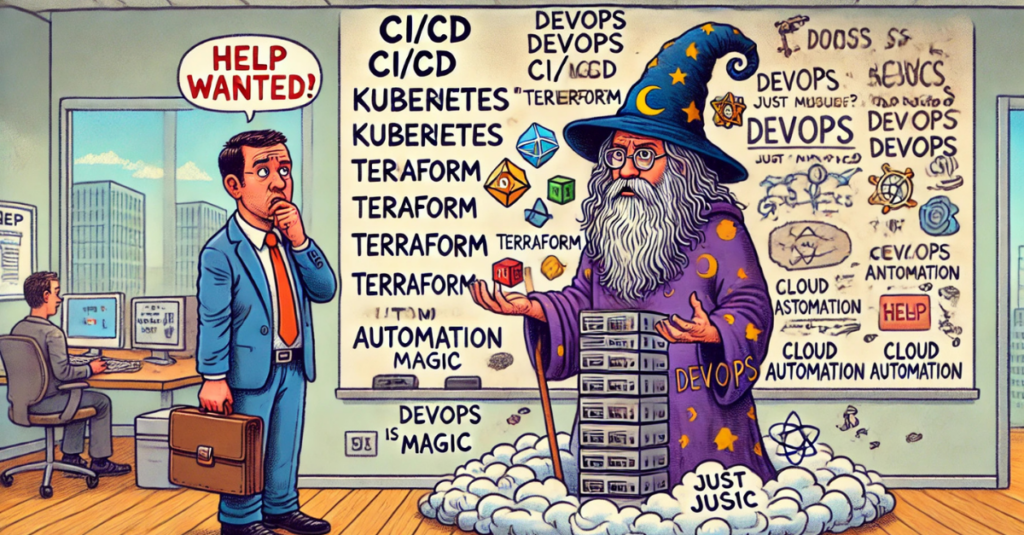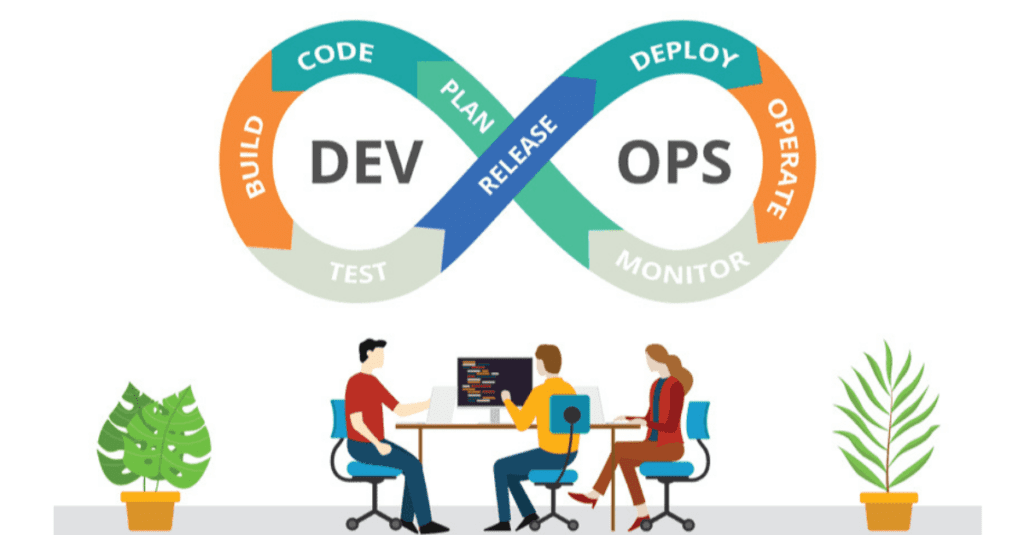So, you need a DevOps engineer. You’ve heard the buzzwords, you’ve read the LinkedIn posts and now you’re ready to find that magical human who will automate all your problems away.

Except…
Your hiring process is probably broken.
Why? Because most companies don’t actually know what DevOps is. They think it’s just a fancy word for “someone who fixes AWS when it breaks. It’s not. And if you go into hiring with that mindset, you’re going to end up with the wrong person—or worse, no one at all.
Let’s fix that. Here’s what most companies get completely wrong when hiring a DevOps engineer—and what to do instead.
1. You think DevOps = IT support
Let’s get this straight: DevOps is not just glorified IT. If you’re hiring a DevOps engineer because you need someone to reset passwords and install Zoom updates, you’re looking for an IT admin, not DevOps.

What DevOps actually is:
- Automation and CI/CD: Making sure deployments don’t involve a ritual sacrifice to the deployment gods.
- Infrastructure as Code (IaC): No more manually configuring servers in the dark.
- Observability & Monitoring: Knowing what’s going to break before it actually does.
- Scalability & Reliability: Making sure your app can handle actual traffic without combusting.
Want a DevOps engineer who does more than restart servers? TechTeems connects you with experts who actually build scalable systems.
2. You’re asking for “10+ years of Kubernetes” (and other impossible requirements)
The fastest way to repel great candidates? Post a job description that makes no sense.
If your job post says:
- “10+ years of Kubernetes experience” (Kubernetes wasn’t even publicly available 10 years ago)
- “Expert in every cloud provider ever” (No one is truly fluent in AWS, GCP, Azure and Oracle Cloud. Especially Oracle Cloud.)
- “Ability to work 24/7 on-call with no extra pay” (??? Are you trying to repel talent?)
…then congratulations, you just wrote a job description only an AI chatbot would apply for.
How to fix it:
- Be realistic about required experience—look for capability, not arbitrary years.
- Focus on core skills instead of listing every tool under the sun.
- Make it clear what success looks like in the role. Are they automating deployments? Improving monitoring? Cutting cloud costs? Define it.
3. Your hiring process takes forever (and DevOps engineers have already moved on)

DevOps engineers do not sit around waiting for your slow hiring process to catch up. If your process looks like this:
- Week 1: Recruiter screen.
- Week 2: Take-home assignment (40 hours of unpaid work, obviously).
- Week 3: Technical interview.
- Week 4: Manager interview.
- Week 5: Final interview with someone important.
- Week 6: Decision (but you take another week to finalize the offer, of course).
… then your best candidate has already accepted another job by Week 3.
How to fix it:
- Condense your process. If it takes more than 2-3 weeks, you’re losing great talent.
- Respect their time. That “quick take-home test” shouldn’t be an unpaid side project.
- Make quick decisions. DevOps engineers are in high demand—if you delay, someone else will grab them.
4. You’re testing the wrong skills in interviews
Bad interview questions ruin good hiring processes. If you’re asking things like:
- “What happens when you type a URL into a browser?”
- “Explain TCP/IP in excruciating detail.”
- “Reverse a linked list on a whiteboard.”
…then you’ve officially wasted everyone’s time. These questions don’t tell you if someone is a good DevOps engineer.
Better ways to assess real skills:
- Give them a real-world challenge—not a trivia quiz.
- See how they think through problem-solving instead of regurgitating textbook answers.
- Focus on practical experience—”Tell me about a time you prevented a production outage” is infinitely better than “Explain BGP routing tables.”
5. You haven’t created an environment where DevOps can actually succeed

Even if you hire the perfect DevOps engineer, they won’t stick around if your company suffocates their ability to do their job. Common red flags include:
- No budget for tools, but endless budget for meetings.
- A blame culture where DevOps = The Person Who Gets Yelled At.
- No CI/CD pipeline, but also no willingness to implement one.
- The “We’ve always done it this way” mindset.
How to fix it:
- Give DevOps autonomy to actually improve systems.
- Invest in the right tools (yes, paid monitoring is worth it).
- Treat DevOps as a team philosophy, not a single role.
Hire smarter, not harder
Hiring DevOps engineers isn’t rocket science—but it does require understanding what DevOps actually is. If you fix your hiring process, speed things up and offer a real opportunity (not just an on-call nightmare), you’ll attract and retain top talent.


